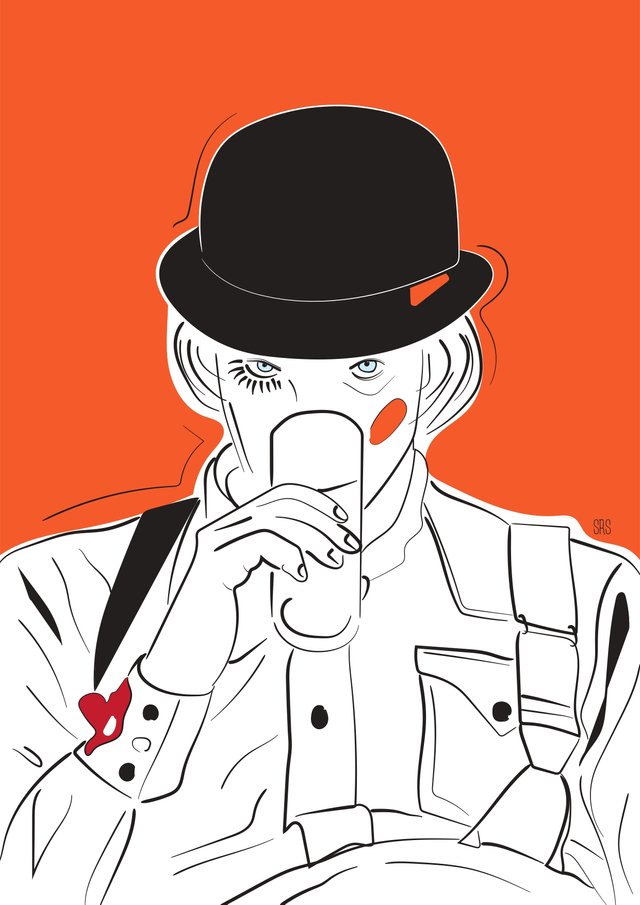A Clockwork Orange
Who doesn't know "A Clockwork Orange"?
A Clockwork Orange, novel by Anthony Burgess, published in 1962. Set in a dismal dystopian England, it is the first-person account of a juvenile delinquent who undergoes state-sponsored psychological rehabilitation for his aberrant behaviour. The novel satirizes extreme political systems that are based on opposing models of the perfectibility or incorrigibility of humanity.
Written in a futuristic slang vocabulary invented by Burgess, in part by adaptation of Russian words, it was his most original and best-known work.
The novel opens in a totalitarian society where violent youths abound. Alex, the protagonist, has a passion for classical music and is a member of a vicious teen gang. He and his droogs (friends) engage in drug-fueled orgies (milk spiked with narcotics is the drug of choice), and their random acts of brutality—particularly against defenseless people—are detailed with enjoyment in Burgess’s made-up slang, Nadsat. At one point the group breaks into a cottage, beating a young writer and gang raping his wife, who later dies. When an attempted robbery goes awry and Alex murders an elderly woman, he is sentenced to 14 years in prison. He gradually adjusts to life behind bars, but one night he and his cellmates beat a new prisoner, who dies. Alex is chosen to undergo an experimental program called the Ludovico’s Technique, a brutal form of aversion therapy that includes Alex watching films of Nazi atrocities. The treatment causes him to become physically sick if he even thinks about committing a crime. It also results in Alex disliking classical music. While government officials deem the procedure a success, the prison chaplain, who had befriended Alex, questions the ethics of removing one’s free will. According to the chaplain, good behaviour should be a choice.
Alex is released from prison, but his behavioral conditioning has left him harmless and defenseless. Among those that exact retribution are former gang members who have become policemen.
Badly beaten, Alex ends up at the cottage of the droogs’ earlier attack, but the writer, F. Alexander, does not recognize him. Instead, he is sympathetic when he learns of the teenager’s aversion therapy and wants to publicize his story in order to turn public opinion against the government.
However, after coming to suspect that Alex was involved in the brutal assault, he tries to make Alex commit suicide, which he plans to blame on the government.
Locked in a room and forced to listen to Beethoven music, Alex jumps out off a window but survives. While he is hospitalized, the doctors undo his conditioning, and Alex ultimately reverts to his former behaviour. In the final chapter of the original British edition, Alex has grown tired of violence, and, after seeing an old friend who has left the gang, he renounces his amoral past.
It is my favorite movie!! This is soooooooooo good!
And here is my illustration of the movie, hope you like it! :)
